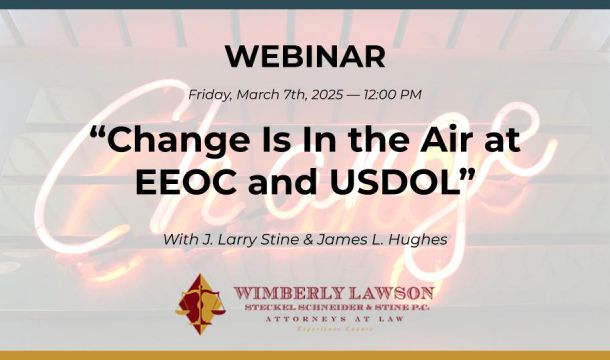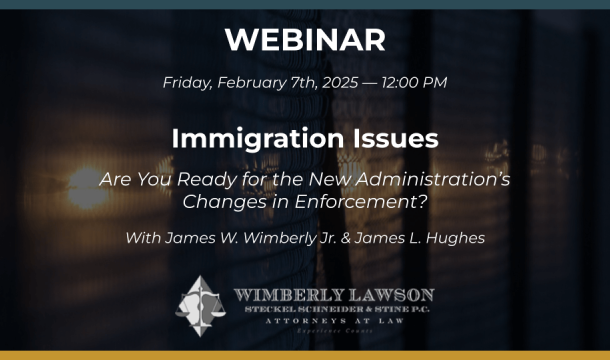Labor Department Withdraws Obama-Era Guidance that Sought to Expand Joint Employment
In a June 7, 2017 news release, U.S. Secretary of Labor (DOL) Alexander Acosta announced the withdrawal of informal guidance issued in 2015 and 2016 on joint employment and independent contractors. No statutes or regulations are repealed or amended, and case law isn’t affected, but the change means that DOL is abandoning the previous Administration’s expansive position.
This is really a return to prior, longstanding practice. Until 2015, DOL interpreted the joint employer doctrine to apply only where one business had “direct control” over another business’s workforce. In 2015, and again in 2016, DOL changed its position and announced that it would consider that one business may be a joint employer with another even if it exerted only “indirect control.” DOL’s plain, if veiled, intention was to reach the deep pockets of a franchisor (think burgers) in the event that an individual franchisee was determined to have committed violations of the Fair Labor Standards Act (FLSA), the Migrant and Seasonal Workers Protection Act (MSWPA), or even laws prohibiting discrimination, such as Title VII and the ADA.
Critics of “indirect control” argued that it was ambiguous and would disrupt franchise, parent-subsidiary, and independent contractor relationships. Companies large and small, particularly franchisors, worried that they could be held financially accountable for conduct at workplaces over which they had no direct oversight or control.
DOL’s announcement of June 7, 2017 rescinded the previously issued “guidance,” but stressed that it would continue to vigorously enforce the FLSA, MSWPA, and all other worker protection laws within its jurisdiction. And even though DOL has changed its position, the Obama-era interpretation still may be invoked by the National Labor Relations Board (“NLRB”), the independent agency that is the government’s main labor law enforcer. The NLRB has held companies jointly liable for their contractors if they have “indirect” control over the terms and conditions of employment or have “reserved authority to do so.” To date, the NLRB has not modified its interpretation, but the Board currently has vacancies for two of its five seats which President Trump has yet to fill.
Questions? Need more information? Call Larry Stine at (404-365-0900)
Related Content
Get Email Updates
Recent Content

Some of the Controversial Issues Currently Being Faced by Employers in Light of Recent Developments

Frequently Asked Questions About Recent Immigration-Related Actions

Issues on DEI from EEOC and DOJ

The Constantly Changing Work Authorization Rules

New Administration Faces Temporary Injunctions against DEI Termination and Firing of NLRB Member



